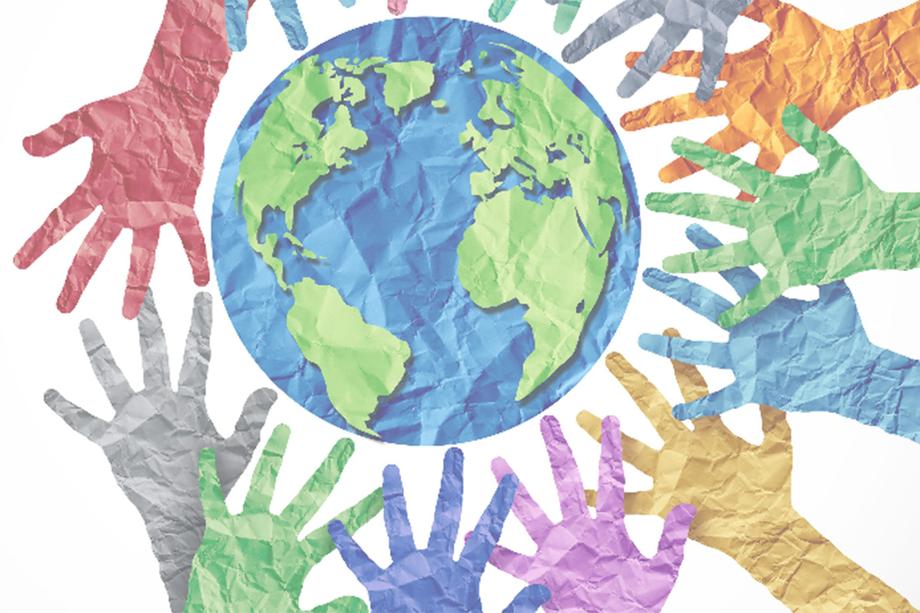Sustainability Resources
April 24, 2024
To support LSA's Year of Sustainability, we asked library experts for recommendations, divided below into general resources, instructional resources, and recommended reading. Topics addressed include climate action, carbon neutrality, the intersectional nature of our shared environment, climate anxiety and hope, and more.
General Resources
Resources for environmental research, including library services, web resources, government agencies, NGOs, and more.
Scholarly databases, data sources, programs, news, and targeted information resources about the SDG framework and its 17 Sustainable Development Goals.
CDP is an international not-for-profit that runs the world’s richest and most comprehensive disclosure system that helps investors, companies, cities, states and regions manage their environmental impacts.
A six-part documentary series offering a global journey filled with discovery, hope, and possibility.
Country-specific estimates of climate hazards and the burden of climate change on human health, opportunities for health benefits from climate mitigation actions, and current policy responses.
Explores the global health nexus between climate change and pollution and the possibilities for a more coherent policy approach to these issues.
Climate change resources for entrepreneurs.
An integrated suite of tools designed for conducting research and analysis across a broad spectrum of environmental, social and governance (ESG) factors.
Use the search terms "sustainability" or "environmental sustainability" in Pivot to find possible funding for your project.
Instructional Resources
Classroom activities centered around real-life case studies of environmental issues that have associated ethical and equity issues.
Teams of students and faculty working in partnership with a broad range of practitioners to solve real-world environmental and sustainability challenges.
Open tools for collaborative learning, including media-rich, immersive teaching modules, facilitate discussion forums, and pre-/post-tests for assessment.
Videos of cases as part of a database of localizing efforts, at multiple scales and various cultural settings, in which people are shifting to a “new normal.”
Recommended Reading
A collection of foundational books on sustainability recommended by LSA faculty, students, and staff.
Gen Z. Author Sarah Jaquette Ray explains why and how we need to let go of eco-guilt, resist burnout, and cultivate resilience while advocating for climate justice.
Writings, some by U-M authors, pointing to a peaceful, democratic, and ecologically resilient transition to an era of localization, limits, and societal opportunities.
Author Paul Hawken responds to the urgency of the climate crisis with a what-to-do manual for individuals, national governments, and everything and everyone in between.
This anthology of writings by 60 women at the forefront of climate work — scientists, journalists, farmers, lawyers, teachers, activists, innovators, wonks, and designers — aims at a more representative, nuanced, and solution-oriented public conversation.
Author Bunyon Bryant, the first African American faculty member in U-M's School for Environment and Sustainability and professor emeritus until his death in March 2024, was a pioneer in the field of environmental justice.
Botanist and member of the Citizen Potawatomi Nation Robin Wall Kimmerer asks questions of nature with the tools of science, and embraces the notion that plants and animals are our oldest teachers.
The story of Catherine Flowers' efforts to change her hometown's inadequate or non-existent sewage infrastructure while engaging with systemic issues — class, race, geography — that impede progress.
Katharine Hayhoe, chief scientist for The Nature Conservancy, gives you tools to open a dialogue with your loved ones about how we all can play a role in pushing forward for change.
Michael Classens, a leader in food systems studies, identifies the ways that humans interact with and conceptualize nature.
Peter Laufer examines the threat against turtles as a metaphoric discussion of how mentality, mythology, and metaphor affect the current understanding of interlocking climate crisis topics.
An energizing case for hope about the climate with a chorus of strong voices from around the world calling on us to rise to the moment, shaped by editors Rebecca Solnit and Thelma Young Lutunatabua, and with illustrations by David Solnit.
Science fiction author Kim Stanley Robinson turns his eye to themes of climate change, technology, politics, and the human behaviors that drive these forces, and imagines a hopeful future, one where humanity has managed to overcome our challenges and thrive.
Nicole Walker questions what it means to live sustainably while still being able to have Internet access and eat bacon — a book for the burnt-out environmentalist, the lazy environmentalist, the would-be environmentalist.
Michael Mann draws battle lines between the people and the polluters — fossil fuel companies, right-wing plutocrats, and petrostates — and outlines a plan for forcing governments and corporations to wake up and make real change.
In these inspiring, alarming, and darkly humorous essays, originally published in The New Yorker, Elizabeth Kolbert investigates the landscape of climate change.
Hope Jahren illuminates the link between human habits and our imperiled planet, taking you through the science behind key inventions.
